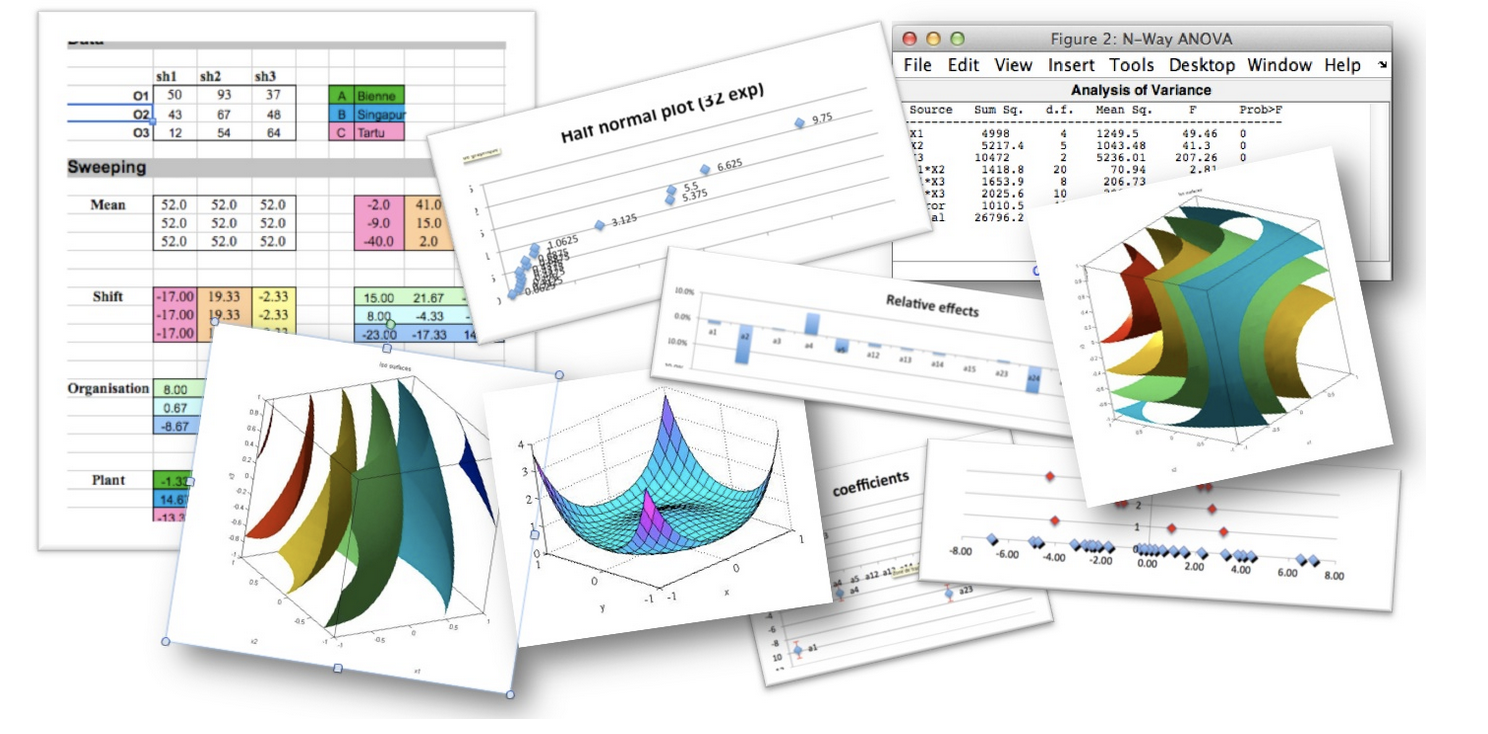
Welcome to the Master's level course on Design of Experiments! This program is structured to provide you with a comprehensive understanding of statistical concepts and their application in experimental design. Here's an overview of the course content:
1. Introduction to Statistics and Epistemology:
- Gain a foundational understanding of statistics and epistemology.
- Learn the basics of statistical analysis and develop insights into scientific proof.
2. Multilinear Statistical Modeling:
- Explore statistical modeling in multilinear situations.
- Introduce key statistical concepts crucial for designing experiments.
3. Analysis of Variance:
- Focus on understanding the modeling process as a projection of a vector on a subspace.
- Delve into the intricacies of analysis of variance for effective experimental design.
4. Classical Experimental Designs:
- Explore widely used designs like Plackett-Burman, factorial, and fractional factorial designs.
- Understand the principles behind these designs and their applications.
5. Surface Response Design and Canonical Analysis:
- Learn about surface response design, a critical aspect of experimental optimization.
- Explore canonical analysis for a deeper understanding of multivariate relationships.
6. Mixture Designs:
- Delve into the realm of mixture designs, addressing the complexities of experiments involving multiple components.
7. Qualitative Factors:
- Explore the role of qualitative factors in experimental design.
- Understand how to incorporate qualitative variables effectively.
Throughout the course, you'll engage in practical applications and exercises to reinforce your theoretical knowledge. This program aims to equip you with the skills needed to design robust experiments, analyze data effectively, and draw meaningful conclusions. Get ready for an enriching journey into the world of experimental design and statistical analysis!
Course Project: Sensitivity Analysis of National Energy Simulation using Energyscope
Project Overview: In this group project, you and your team (consisting of 3 to 5 students) will undertake a comprehensive sensitivity analysis of a national energy simulation model called Energyscope. The objective is to deepen your understanding of experimental design concepts by applying them to a real-world scenario. The project will unfold over several weeks, incorporating key milestones.
Project Timeline:
Weeks 1-3: Project Familiarization and Planning
- Understand the functionalities and components of Energyscope.
- Formulate a clear project plan outlining tasks and responsibilities for each team member.
Weeks 4-6: Initial Sensitivity Analysis
- Begin the sensitivity analysis of Energyscope, focusing on key parameters and variables.
- Identify potential areas for improvement or optimization in the national energy simulation.
Week 7: Intermediary Report Submission
- Prepare and submit an intermediary report summarizing your initial findings and progress.
- Exchange feedback with another group to gain diverse perspectives on your approach.
Weeks 8-10: Refinement and Feedback Implementation
- Incorporate feedback received from the peer group into your sensitivity analysis.
- Refine your approach and address any identified challenges.
Weeks 11-13: Final Sensitivity Analysis and Report
- Conduct a thorough sensitivity analysis, considering a broader range of factors.
- Compile your findings and insights into a comprehensive final report.
Week 14: Final Report Submission
- Submit the final report, documenting your complete sensitivity analysis and conclusions.
- Ensure that the report reflects the iterative process and improvements made based on feedback.
Week 15: Individual Oral Exam
- Each team member will participate in an individual oral exam.
- Discuss your contributions, insights gained, and lessons learned from the project.
- Answer to theoretical question on the course
Assessment Criteria:
- Quality of the intermediary and final reports.
- Effectiveness of the sensitivity analysis and experimental design.
- Collaboration within the team and incorporation of peer feedback.
- Individual performance in the oral exam.
This project offers a hands-on opportunity to apply the concepts learned in the course to a real-world energy simulation model. Embrace the challenges, engage in meaningful discussions within your team, and enjoy the learning journey. Good luck!
- Professor: Jean-Marie Fuerbringer
